At a news conference this month, President-elect Donald Trump bragged, “We defeated ISIS.”
It has been a point of pride for him, and it is true. In the first year of Trump’s first term, U.S. forces, working with Syrian Kurdish allies, defeated the Islamic State’s self-proclaimed “caliphate” and liberated its capital. But the fall of the Assad regime has left Syria at risk of coming apart under pressure from a variety of terrorist groups, local militias and Israeli airstrikes. And Syria’s interim leaders, while proclaiming moderate intentions, have roots in Al Qaeda and another terrorist group, Hayat al Sham (HTS). The nightmare scenario for many experts is that ISIS could re-establish its stronghold in the fledgling state and export more terrorism to the West or inspire it, as it did the New Year’s Day attack in New Orleans.
The situation means that, once he is in office, Trump will most likely have to make some hard choices — insist on withdrawing all or some of the 2,000 U.S. troops in Syria, in line with his previous positions, or leave them in place to prevent an ISIS resurgence and a tarnishing of what he sees as his accomplishment in his first term. U.S. withdrawal could easily re-create Syria as a base of operations for terrorist attacks in Israel, the United States and Europe.
The United States has been relying on fighters from the Syrian Defense Force (SDF), an alliance led by Kurds in northeast Syria, to guard thousands of captured ISIS fighters and their families there. At the height of the war against ISIS, Gen. Joseph Votel, a former commander of U.S. Central Command, told NBC News that the SDF’s fighters were among the best he has ever led.
But the SDF’s commander in chief, Gen. Mazloum Abdi, told The Guardian this month that ISIS is growing in strength after it seized weapons from the collapsed Syrian regime. He also said the Kurdish forces are coming under increased pressure from Turkish President Recep Tayyip Erdoğan, who views them, along with Kurdish separatists based in Syria known as the PKK, as threats to his regime.
Outgoing Secretary of State Antony Blinken said Monday in an interview with NBC News that the U.S. role in helping guide and shape what is happening in Syria is “essential.”
Blinken described the situation on the ground as “incredibly fragile,” warning that “what happens inside of Syria doesn’t stay inside of Syria,” with the potential for terrorism that goes well beyond its borders.
The United States has a stake in the “extraordinary opportunity that is now before the Syrian people to actually control their own lives and their own destinies,” he said. “That means, I believe, keeping some presence, but it also means being very engaged in all of the efforts to help support a Syrian-owned, Syrian-led transition to get the country to a better place.”
Theodore Kattouf, a career diplomat who was the U.S. ambassador to Syria under President George W. Bush, told NBC News recently that even if Trump were to continue bombing campaigns and targeted operations against the terrorist group, removing U.S. troops would leave the Kurdish coalition vulnerable and ultimately lead to an expanded footprint for ISIS.
“With those troops out of there, we’re putting a lot of U.S. interests at risk,” Kattouf said. “I don’t see [HTS] or other allied rebel forces able to take on that issue right now.”
The fear among Biden administration counterterrorism officials is that a Trump withdrawal of U.S. forces would leave the Syrian Kurds guarding the ISIS prisoners vulnerable to attacks from other factions — or the looming presence of Turkey, just across the border. Both Trump in his first term and President Joe Biden have worked hard to restrain Erdoğan, whose country remains a NATO ally, from attacking America’s Kurdish allies. Trump said at his news conference last week that he had asked Erdoğan not to go after “certain people,” clearly referring to the Kurds. Trump added, “President Erdoğan is his friend of mine, he’s a guy I like, respect. I think he respects me also.”
Beyond serving as a base for operations and planning, any Syrian territory that falls to ISIS could help it project an image of power and resistance and inspire others around the world. The group has already been expanding its global reach through social media, sponsoring attacks and influencing followers worldwide, including so-called lone wolves, through what anti-terrorism experts say is a surge of sophisticated online propaganda. CIA Director William Burns told NPR last week that the agency is “quite concerned” about the rising threat posed by ISIS, particularly its “ability to inspire people.” And in July, FBI Director Christopher Wray warned the House Judiciary Committee that “the greatest terrorism threat to our homeland has been posed by lone actors or small cells of individuals who typically radicalize to violence online and use easily accessible weapons to attack soft targets.”
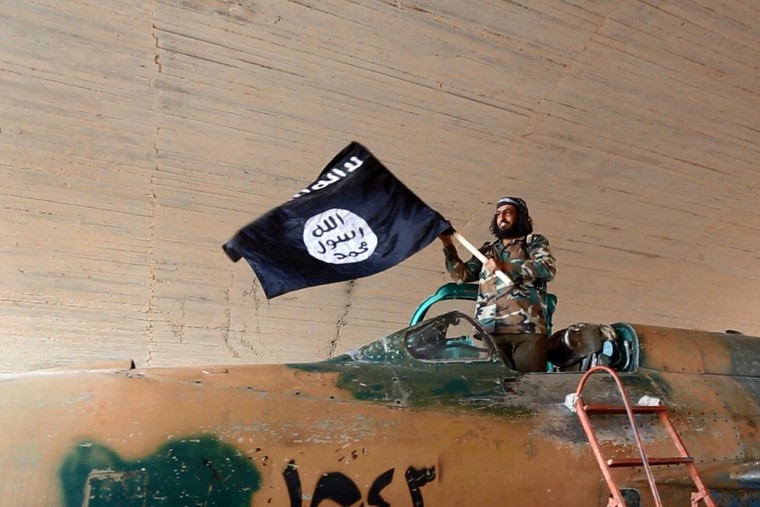
The U.S. intelligence community and the FBI have been sounding those alarm bells for more than a year. A senior administration official told NBC News on Friday, “There is a heightened focus on ISIS,” pointing to the cancellation of three Taylor Swift Eras Tour shows in Vienna in August after warnings from U.S. intelligence of ISIS terrorist plots targeting the venues. And in March, gunmen from ISIS-K, an affiliate of ISIS based in Afghanistan, killed more than 130 people at the Crocus City Hall, a well-known concert venue outside Moscow, despite warnings from U.S. intelligence, according to U.S. officials.
“Syria could provide the group with the momentum that it’s long sought to kind of spill back onto the headlines, whether that’s ISIS K in Afghanistan, ISIS core, ISIS Central and Syria and parts of Iraq, and again, the homegrown violent extremists that live in the West that ISIS is attempting to push over the edge conduct the types of attack that we saw in New Orleans,” counterterrorism expert Collin Clarke of the Soufan Group told NBC News after the New Orleans attack.
Clearly alarmed by the possibility of the collapsed state’s exporting terrorism to Europe, two weeks ago the foreign ministers of France and Germany, representing the European Union, traveled to Damascus to meet Syria’s interim leader, Ahmed al-Sharaa, who was known by his nom de guerre, Abu Mohammad al-Jolani, before he disavowed his connections with HTS.
American boots?
“Syria is a mess, but is not our friend,” Trump said on X in the hours before the collapse of the Assad regime, adding, “The United States should have nothing to do with it. This is not our fight. Let it play out. Do not get involved!”
Trump’s pick for national security adviser, Rep. Mike Waltz, R-Fla., echoed Trump’s reluctance for the United States to intervene in Syria but underscored the incoming administration’s commitment to combating ISIS. “We do not need American boots running around Syria in any way, shape or form, but we’re keeping an eye on those things, ISIS, Israel’s border, and kind of the broader dynamic with our Gulf allies,” Waltz said on a podcast late last month.
But experts question the ability to continue the fight against ISIS in Syria without a U.S. military presence.
During the transition, a senior Biden administration official said, the current administration has been briefing Trump’s national security team on the need for a continued U.S. military presence to prevent Russia, Turkey or Iran from gaining dominance. The outgoing Biden administration has itself been treading carefully, sending its top Middle East diplomat, Assistant Secretary of State Barbara Leaf, to Damascus only after European counterparts had already visited and only after public pressure from the mother of Austin Tice, the American journalist believed to be imprisoned in Syria, who said the United States should be more engaged. To even meet with the new interim leader, the State Department first had to lift the $10 million bounty it had put on his head when he led HTS.
But now the critical question of whether the United States should play a role in preventing Syria from again harboring terrorists or permitting power plays from U.S. regional adversaries will be on Trump’s doorstep as he arrives at the White House. That and the challenge of combating the online propaganda that spreads ISIS’ terrorist philosophy far and wide.

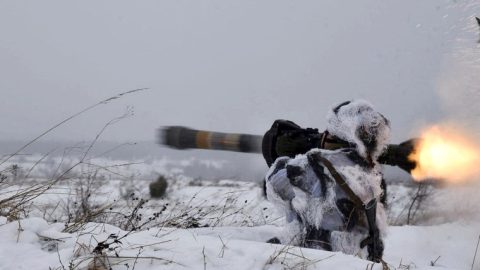
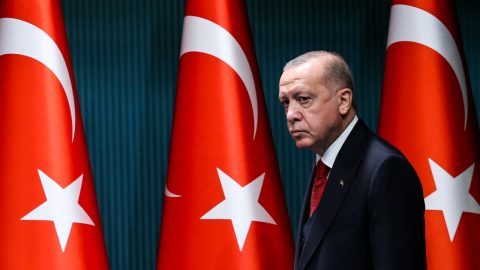
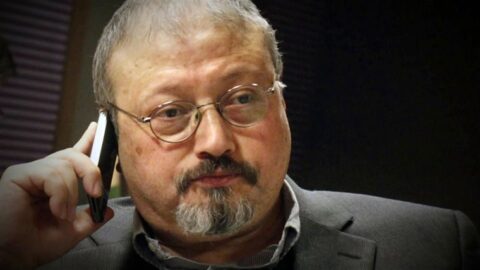
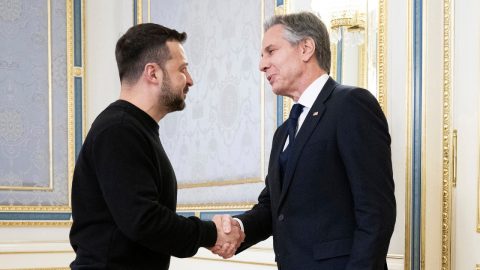
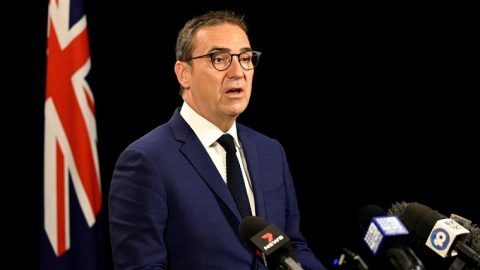


Recent Comments